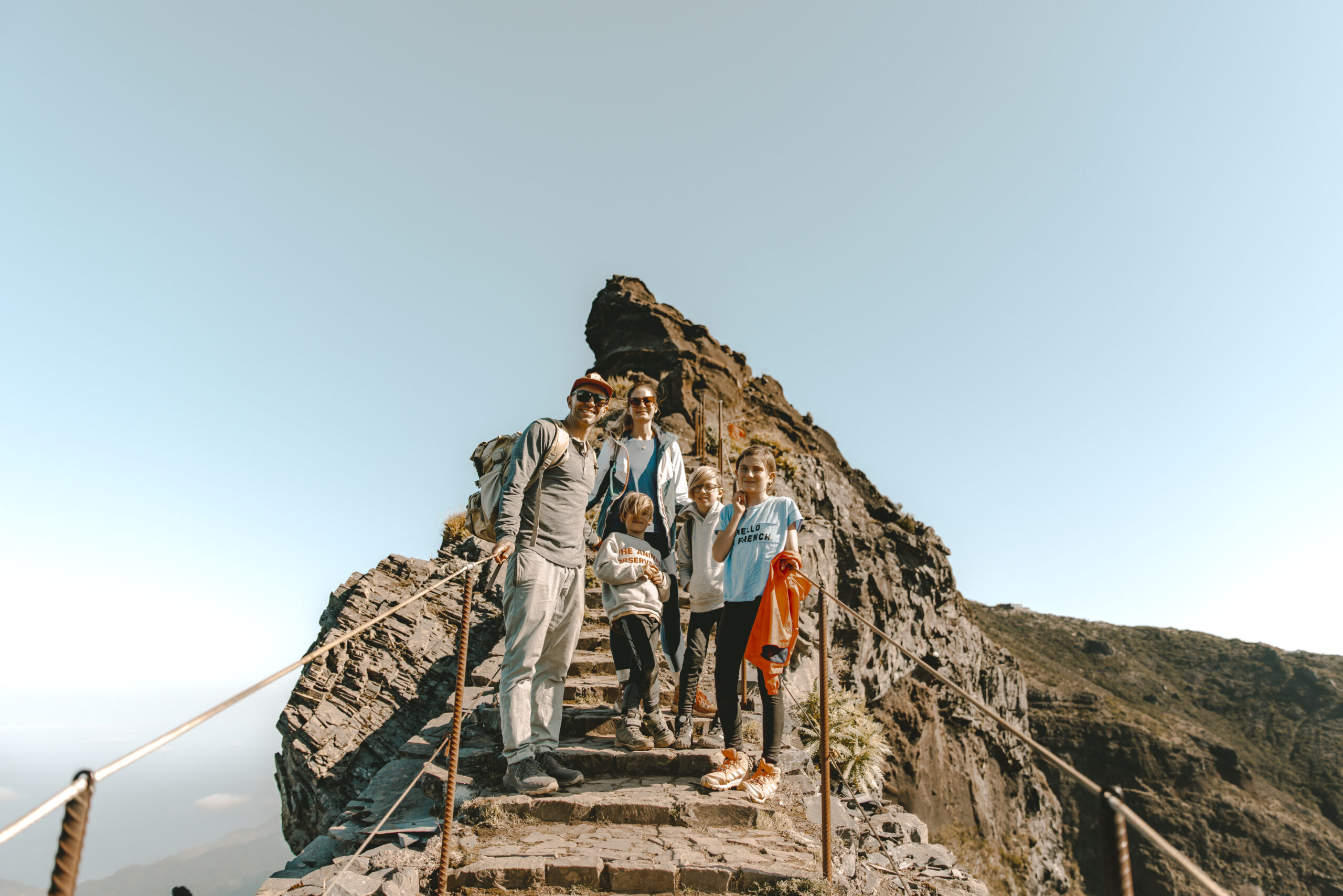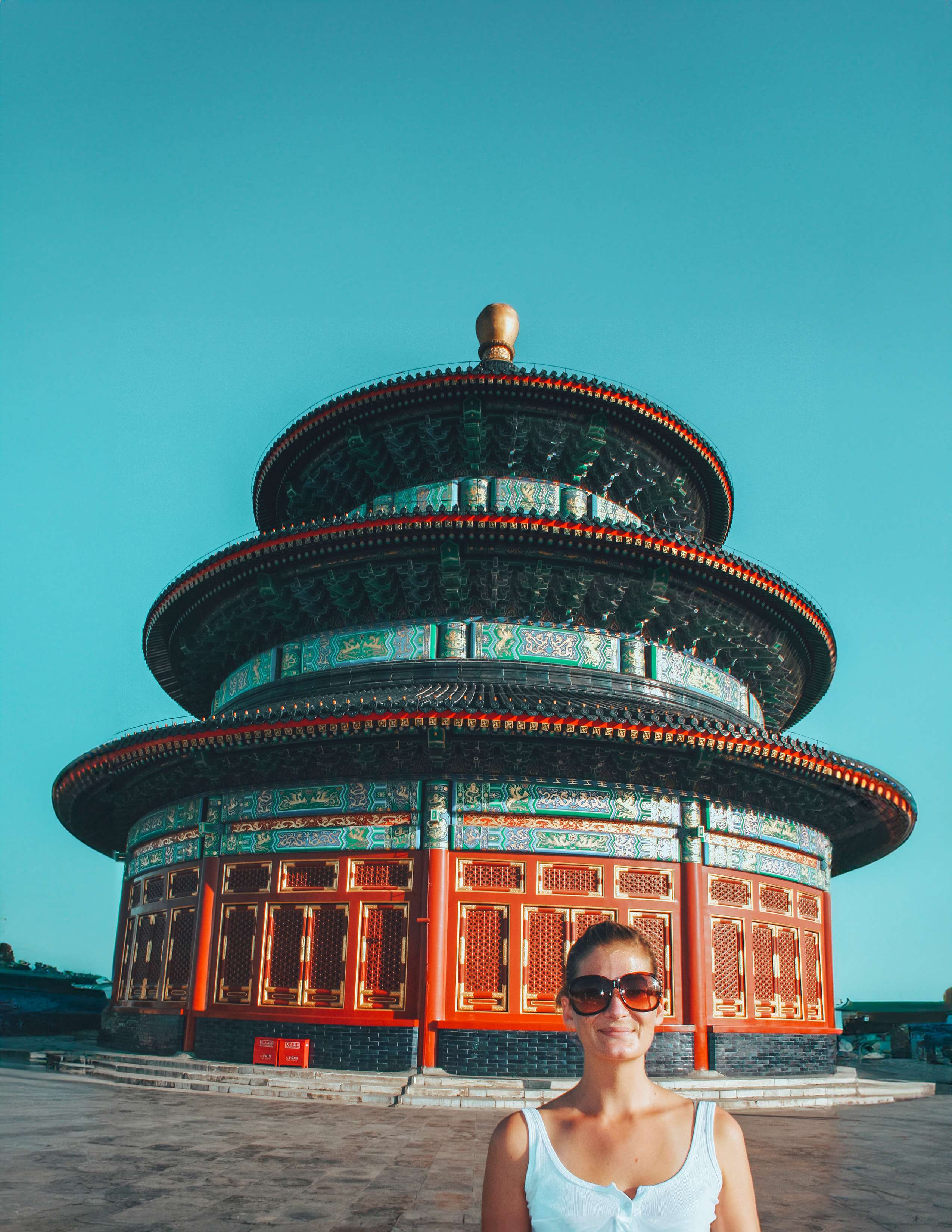Why Spain is a great place for kids
Choosing the city that's right for you
Choosing the visa that's right for you
More than just great weather
Why Spain provides a better quality of life

How we Plan

What we pack
Choosing Travel Insurance
Book Your Hotel
with Booking.com
Book Your Car
with RentalCars.com
Book Your Flight
with Skyscanner.com
Book Your Tour
with GetYourGuide.com

Our Camera Gear

How We Fly
Choosing Your Destination
Guide to...
China
China, a land of ancient wonders and modern marvels, boasts iconic landmarks like the Great Wall, the Forbidden City, and the futuristic skyline of Shanghai, offering travelers a fascinating journey through millennia of history and vibrant cultural traditions.
Map
Weather
Itineraries

Coming Soon...
Beijing
Top Five Restaurants in beijing
TRB Hutong offers an elegant dining experience with its European-inspired menu and extensive wine selection. The restaurant is situated in a charming courtyard, providing a serene and historic atmosphere. It’s renowned for its impeccable service and exquisite dishes.
King’s Joy is a celebrated vegetarian restaurant that combines traditional Chinese cuisine with innovative vegetarian dishes. The ambiance is tranquil, with beautiful garden views and live guqin music, making it a perfect spot for a refined dining experience.
Famous for its Peking duck, Duck de Chine offers a luxurious take on this classic Beijing dish. The restaurant’s chic, modern decor and open kitchen create a vibrant and engaging dining environment. It’s a must-visit for anyone looking to experience Beijing’s culinary heritage.
Da Dong Roast Duck is renowned for its perfectly roasted Peking duck with crispy skin and tender meat. The restaurant’s modern interior and artistic presentation of dishes make it a favorite among locals and tourists alike. Da Dong’s innovative approach to traditional recipes sets it apart.
Haidilao Hot Pot offers a unique and interactive dining experience with its customizable hot pot dishes. Known for its exceptional customer service, including entertainment and personal touches, Haidilao has become a beloved spot for both locals and visitors seeking a flavorful and fun meal.
Top Five hotels in beijing
The China World Hotel, Beijing, is a luxurious five-star hotel located in the heart of the city’s Central Business District. It offers world-class amenities, including elegant rooms, fine dining options, and an extensive fitness center. Guests enjoy easy access to top shopping destinations and cultural sites.
Jianguo Hotel combines modern comfort with traditional Chinese charm, providing guests with a warm and welcoming atmosphere. Located near the bustling Silk Market, it features spacious rooms, a beautiful garden, and multiple dining options. The hotel’s prime location makes it an ideal base for exploring Beijing.
Beijing Pudi Hotel is a sophisticated choice for travelers, offering stylish accommodations and a range of luxury amenities. The hotel is conveniently situated near the Beijing Railway Station and various cultural attractions. Guests appreciate the attentive service and contemporary design.
Novotel Beijing Peace is a modern hotel situated close to the Wangfujing shopping district and Tiananmen Square. It boasts comfortable rooms, an indoor pool, and diverse dining options. The hotel’s central location and excellent facilities make it a popular choice for business and leisure travelers.
Holiday Inn Beijing Deshengmen offers a comfortable stay with its well-appointed rooms and convenient amenities. Located near the Deshengmen area, it provides easy access to key attractions like the Drum Tower and Houhai Lakes. The hotel’s friendly service and relaxed atmosphere ensure a pleasant stay for guests.
hongkong
Top Five Restaurants in hongkong
Lung King Heen, located in the Four Seasons Hotel, is the first Chinese restaurant in the world to be awarded three Michelin stars. The restaurant offers exquisite Cantonese cuisine, with standout dishes like the baked abalone and crispy scallops. Its harbor view and elegant setting make it a must-visit for fine dining enthusiasts.
Situated in The Langham, T’ang Court is another Michelin-starred gem in Hong Kong, celebrated for its authentic Cantonese dishes. Signature offerings include the sautéed prawns and crab roe with golden-fried pork, and the signature lobster. The luxurious ambiance and impeccable service ensure a memorable dining experience. T’ang Court – The Langham
Amber, housed in the Landmark Mandarin Oriental, is renowned for its innovative French cuisine under the guidance of Chef Richard Ekkebus. The restaurant’s commitment to sustainability is reflected in its use of fresh, organic ingredients, creating dishes that are both flavorful and artfully presented. Its chic, contemporary design adds to the sophisticated dining atmosphere. Amber – Landmark Mandarin Oriental
Famous for its wonton noodles, Mak’s Noodle is a beloved institution in Hong Kong, with a history dating back to the 1960s. The thin egg noodles, paired with plump shrimp wontons in a flavorful broth, make for a simple yet satisfying meal. Despite its modest setting, Mak’s Noodle has earned a Michelin Bib Gourmand award for its outstanding quality.
Mott 32 offers a modern twist on traditional Chinese cuisine, set in a stylish, industrial-chic environment. The menu features a range of dishes from dim sum to signature Peking duck, all made with high-quality ingredients. Located in the Standard Chartered Bank Building, Mott 32 combines heritage and innovation in a unique dining experience.
Top Five hotels in hongkong
Hotel ICON, located in Tsim Sha Tsui East, is a unique, design-driven hotel that blends luxury with sustainability. Known for its stunning vertical garden and impressive art collection, it offers modern rooms with spectacular views of Victoria Harbour. The hotel’s award-winning restaurants and rooftop pool enhance its appeal as a top choice for travelers.
South Nest provides a cozy and contemporary stay in the heart of Hong Kong. With its convenient location, guests can easily explore nearby attractions, shopping, and dining options. The hotel’s modern amenities and friendly service ensure a comfortable and enjoyable stay.
The Royal Garden is a luxury hotel in Tsim Sha Tsui, renowned for its lush atrium and excellent dining options. The spacious rooms are elegantly decorated, offering panoramic views of the city or harbor. Guests appreciate the hotel’s close proximity to major shopping and cultural sites.
Eaton HK is a vibrant, socially-conscious hotel that combines art, culture, and hospitality in the heart of Kowloon. The hotel features modern rooms, diverse dining options, and a co-working space, making it ideal for both leisure and business travelers. Its rooftop pool and wellness center add to its appeal as a trendy urban retreat.
The Luxe Manor offers a whimsical and eclectic boutique hotel experience in the bustling Tsim Sha Tsui area. Each room is uniquely designed, blending European grandeur with modern comforts. The hotel’s distinctive style and attentive service make it a favorite among travelers seeking something different.
xi'an
Top Five Restaurants in xi'an
Defachang Dumpling Restaurant is famous for its traditional Chinese dumplings, offering a variety of flavors and styles that delight both locals and tourists. The restaurant provides a unique dining experience with its elaborate dumpling banquets, featuring intricately shaped and deliciously stuffed dumplings. It’s a must-visit for anyone looking to sample authentic Xi’an cuisine.
This restaurant is renowned for its biangbiang noodles, a traditional dish that showcases the unique flavors of Shaanxi province. With a casual and friendly atmosphere, First Noodle Under the Sun attracts food enthusiasts eager to try its hearty noodle dishes. The combination of fresh ingredients and traditional cooking methods ensures a memorable meal.
Known for its exquisite Peking duck, Dadong Roast Duck Restaurant offers an upscale dining experience in the heart of Xi’an. The restaurant prides itself on its meticulous preparation and presentation of dishes, providing a feast for both the eyes and the palate. It’s an ideal spot for savoring one of China’s most celebrated culinary traditions.
Chang’an Impression offers a modern twist on traditional Shaanxi cuisine, blending local flavors with contemporary culinary techniques. The stylish decor and innovative menu make it a popular choice for both locals and visitors looking for a sophisticated dining experience. Each dish is crafted with care, ensuring a delightful and flavorful meal.
La Seine combines French culinary artistry with local ingredients, resulting in a unique fusion dining experience. The elegant setting and attentive service complement the exquisite menu, making it a favorite for special occasions. Guests can enjoy a variety of gourmet dishes, each meticulously prepared to highlight the finest flavors.
Top Five hotels in xi'an
Located near the iconic Bell Tower, this hotel offers modern amenities and comfortable accommodations in the heart of Xi’an. Guests appreciate the convenient location, making it easy to explore the city’s historic attractions. The hotel provides a complimentary breakfast and free Wi-Fi, ensuring a pleasant stay.
Jinmao Hotel Xi’an Downtown boasts luxurious rooms and top-notch facilities, perfect for both business and leisure travelers. Its central location allows easy access to popular tourist spots, shopping areas, and dining options. The hotel’s exceptional service and elegant design make it a standout choice in Xi’an.
Combining traditional Chinese decor with modern comforts, Jin Jiang West Capital International Hotel offers a unique and welcoming atmosphere. Located in the bustling downtown area, it provides easy access to Xi’an’s cultural and historical sites. Guests enjoy the spacious rooms, excellent service, and onsite dining options.
The Sheraton Xi’an Hotel provides a luxurious retreat with its well-appointed rooms, premium amenities, and exceptional hospitality. Conveniently located near major attractions and business districts, it is ideal for both leisure and business travelers. The hotel’s dining options, fitness center, and pool add to its appeal.
Moxy Xi’an Beilin offers a trendy and vibrant stay with its stylish decor and lively atmosphere. Located in the Beilin district, it provides easy access to local attractions and nightlife. The hotel’s youthful energy and modern amenities cater to a dynamic and enjoyable experience for guests.
FAQ's
What are the main things to do with kids in China?
Traveling to China with kids can be an unforgettable adventure. Here are some top activities that will keep the whole family entertained:
1. Visit the Great Wall of China: A trip to China wouldn’t be complete without walking this historic wall. Kids will love the adventure of exploring the ancient fortifications, and cable cars or toboggan rides make the steeper sections fun and accessible.
2. Explore Shanghai Disneyland: This theme park blends Disney magic with unique cultural elements. It’s perfect for a family day out with thrilling rides and shows that cater to all ages.
3. Discover the Terracotta Warriors in Xi’an: This impressive archaeological site is fascinating for its history and the story behind the thousands of life-sized figures.
4. Enjoy a River Cruise on the Li River: The scenery here is straight out of a painting, with dramatic karst mountains rising from the riverbanks. A boat trip can be a relaxing way to take in the breathtaking landscapes.
5. Interact with Pandas in Chengdu: Visiting a panda breeding center like Chengdu’s is a highlight for animal lovers. Kids can learn about conservation efforts and see these adorable creatures up close.
6. Join in a Kite Flying Festival: Kite flying is a popular activity across China. Participating in a local festival can be a great way to engage with traditional Chinese culture.
7. Learn Chinese Calligraphy: Take a family calligraphy class. It’s not just artistic; it’s a dive into the language and history of China.
These activities offer a mix of fun, education, and culture that are sure to enrich your family’s travel experience.
What is China famous for?
China is renowned for its rich tapestry of history, culture, and modern achievements. Here are some of the things it’s most famous for:
Great Wall of China: One of the world’s wonders, this vast wall stretches over 13,000 miles and showcases ancient defense architecture.
Forbidden City in Beijing: Once the imperial palace for twenty-four emperors, it’s a masterpiece of Chinese architecture and holds countless cultural artifacts.
Terracotta Army: Discovered in Xi’an in the 1970s, this collection of thousands of life-sized statues guarding the tomb of Emperor Qin Shi Huang is a sight to behold.
Cuisine: Chinese food is loved globally. Each region has its specialties, from Sichuan’s spicy dishes to Cantonese dim sum.
Silk and Porcelain: Historically, China was the sole producer of silk and fine porcelain, coveted commodities that were exported along the Silk Road.
Pandas: Native to the mountain ranges in central China, the giant panda is a national symbol and a global conservation icon.
Economic Powerhouse: In recent decades, China has emerged as a global economic leader, influencing worldwide trade and technology.
Festivals: Rich in traditions, Chinese festivals like Chinese New Year and the Lantern Festival are celebrated with much enthusiasm and cultural pride.
From its ancient monuments and traditions to its influence in global affairs today, China’s legacy and dynamic present are what make it truly unique on the world stage.
What power plug type does China use?
China primarily uses two types of power plugs: Type A and Type I. Here’s a quick breakdown:
- Type A: This is the standard two-prong plug that is also commonly used in the USA and Japan. It has two flat parallel pins.
- Type I: This plug has three flat pins in a triangular pattern and is also used in Australia and New Zealand.
The standard voltage in China is 220V, and the frequency is 50Hz. If you’re traveling from a country with a different standard voltage or plug type, you’ll need to bring a suitable adapter or voltage converter for your devices.
Is China safe?
China is generally considered safe for tourists. Like any large country, it has areas that are safer than others, but overall, tourists can feel secure with some basic precautions. Here are a few aspects to consider for safety:
Crime Rates: China has a relatively low crime rate compared to other countries. Violent crime is rare, but petty theft like pickpocketing can occur, especially in crowded places such as tourist attractions and public transport.
Traffic: Traffic can be chaotic, and road safety standards might differ from what you’re used to. It’s important to be cautious when crossing streets and while driving.
Health: Travelers should take care with food and water hygiene to avoid stomach ailments. Air quality in major cities can be poor, and those with respiratory issues should take necessary precautions.
Laws and Regulations: China has strict laws, and it’s crucial to comply with local regulations. Be aware of the rules about internet use, including restricted access to many Western social media sites without a VPN.
Natural Disasters: Certain areas in China are prone to natural disasters like earthquakes and typhoons. It’s wise to check the local weather and disaster warnings especially if traveling to regions affected by these conditions.
Travelers should always stay informed about the local environment and maintain common-sense safety practices, such as keeping valuables secure and staying aware of their surroundings.
What kind of tours do China travel services offer?
China’s travel services offer a diverse range of tours catering to different interests and preferences. Here’s a look at some popular types:
1. Historical and Cultural Tours: These tours focus on China’s rich history and culture, visiting iconic sites like the Great Wall, the Forbidden City, and the Terracotta Warriors. They often include expert guides who provide deep insights into the history and significance of each site.
2. City Tours: Major cities like Beijing, Shanghai, and Guangzhou have their own specialized tours, which can include walking tours, culinary experiences, and visits to contemporary attractions like the Shanghai Skyline or the arts district in Beijing.
3. Nature and Adventure Tours: For the more adventurous, these tours might involve hiking in the Yellow Mountains, cruising down the Yangtze River, or exploring the rural landscapes of Yunnan and Sichuan.
4. Food and Culinary Tours: Given the diversity of Chinese cuisine, these tours are popular among food lovers. They might involve food tasting, cooking classes, and visits to local markets.
5. Cycling and Walking Tours: These are great for those who want to explore at a slower pace. Many scenic areas and historical sites are accessible by bike or on foot, offering a more immersive experience.
6. Custom and Private Tours: For travelers looking for a more personalized experience, many agencies offer custom tours where you can tailor the itinerary to your specific interests and preferences.
7. River Cruises: Particularly popular are cruises along the Yangtze River, offering luxurious travel and sightseeing through some of China’s most dramatic landscapes.
These tours can vary greatly in length, cost, and accommodation standards, catering to luxury travelers, backpackers, and everyone in between.
What are the top travel agencies in China for planning a customized tour?
When planning a customized tour in China, choosing a reputable travel agency that can tailor the experience to your preferences is crucial. Here are some of the top travel agencies known for their quality service and ability to create personalized itineraries:
China Highlights – Known for their flexibility in customizing tours to match specific interests and needs. They cater to a variety of travel styles, from cultural and historical tours to more adventurous excursions.
CITS (China International Travel Service) – One of the oldest and most reliable travel services in China, CITS offers a wide range of tailor-made tours and is well-versed in handling both leisure and business travel.
WildChina – Specializes in off-the-beaten-path and luxury tours. WildChina is praised for its unique itineraries that delve deep into Chinese culture and natural beauty, providing an immersive experience.
China Discovery – Based in Chengdu, they are experts in crafting tours around China, including special access to Sichuan and its famous panda sanctuaries. Their service is particularly noted for personal touches and detailed knowledge.
The China Guide – A Beijing-based agency that excels at creating family-friendly and educational tours. They are known for their no-shopping policy, ensuring that your time is spent exploring sites, not unwanted shopping stops.
Dragon Delight Tours – Offers a wide range of tailor-made and flexible private tours. They are known for their professional service and the ability to cater to both budget travelers and those seeking luxury experiences.
These agencies have solid reputations for quality service and deep knowledge of the best attractions, accommodations, and experiences China has to offer.
What should you look for in a travel guide when exploring China's historical landmarks?
When choosing a travel guide for exploring China’s historical landmarks, several key qualities can make your experience more enriching and enjoyable:
Knowledge of History and Culture: Your guide should have a deep understanding of China’s history and the specific sites you are visiting. This expertise will add context and depth to the landmarks, making your visit more meaningful.
Language Skills: A guide who speaks both English (or your preferred language) and Chinese fluently can be invaluable. They can facilitate communication with locals and provide clearer explanations, enhancing your overall experience.
Enthusiasm and Passion: Look for a guide who is passionate about their work and genuinely interested in sharing their knowledge. An enthusiastic guide can make even the most historically significant sites come alive.
Flexibility: A good guide should be able to adapt the tour based on your interests and any unexpected circumstances that might arise. This flexibility can help maximize your enjoyment and comfort during the tour.
Good Reviews and Recommendations: Check online reviews and seek recommendations from previous travelers. Positive feedback from others can be a strong indicator of a guide’s reliability and quality of service.
Professionalism and Organization: Your guide should be punctual, well-organized, and capable of managing logistics smoothly. This includes handling entry tickets, transportation, and any necessary permits or restrictions at historical sites.
Personable and Approachable: A guide who is friendly and easy to talk to can greatly enhance your travel experience. They should be approachable and willing to answer questions, as well as capable of managing group dynamics if you’re in a shared tour.
These attributes will help ensure that your visits to China’s historical landmarks are informative, enjoyable, and hassle-free.
What are the current travel restrictions for tourists visiting China?
As of 2024, China has relaxed many of its previous travel restrictions, making it more accessible for international tourists. Here are the key points you should know when planning a visit:
-
Visa Requirements: China has resumed processing all types of visas, so tourists need to obtain a valid visa before traveling unless they qualify for visa-free transit policies. Some countries benefit from a 72-hour or 144-hour visa-free transit option under specific conditions, such as being in transit to a third country.
-
COVID-19 Measures: As of August 30, 2023, travelers no longer need to provide a negative COVID-19 test or fill out a Health Declaration Form before entering China. This simplification of entry requirements marks a significant easing compared to the stringent measures previously in place.
-
Regional Considerations: For those planning to visit Tibet, additional permits are required. These include a Tibet Entry Permit, an Aliens’ Travel Permit, and a Military Area Entry Permit for certain areas. It’s important to note that these permits can only be obtained through a local travel agency, as independent travel in Tibet is not allowed for foreigners.
For detailed information on the latest travel advisories and entry requirements, checking with specific travel agencies or the official travel advisory portals before your trip is advisable. This will ensure you have the most current information and a smoother travel experience.

